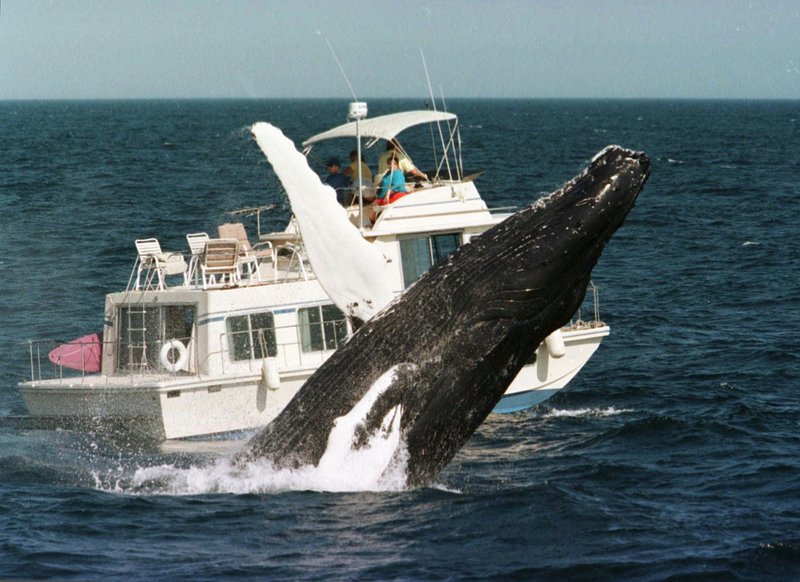BOSTON – A whale research center that has tracked the endangered humpback for decades and helped shift commercial shipping lanes clear of the rare right whale has new life, just months after it announced it was closing.
The Whale Research Center of New England officially rehired four naturalists Friday. Meanwhile, staffers and volunteers are working to strengthen fundraising and operations at the Gloucester-based center.
The center announced in March that it was closing because of dried-up funding sources and the serious illness of its founder, Mason Weinrich.
But Fran Aliberte, a member of the center’s board, said the center never really died because people proved so passionate about the whales and saving the center.
“I thought rock fans were dedicated,” said Aliberte, a retired music executive. “It was really a groundswell that we needed to keep going.”
The center was founded in 1980 by Weinrich, whom board member Jude Seminara calls the “messiah of humpback whales.”
In the ensuing decades, the center collected voluminous data on the humpback, which numbers about 11,500 in the North Atlantic.
The center now has photo identifications of more than 2,500 humpbacks in the Gulf of Maine.
The animals can be individually identified by features including a unique black-and-white pattern on the underside of their tails, said Laura Howes, the center’s program coordinator.
The scientists track the protected whales to monitor their health and their location, a key to helping mariners avoid them.
Howes said the center is also studying the diving patterns of the humpbacks, which could inform how and where fishermen and lobstermen set gear to avoid entangling the whales.
The center’s work monitoring the North Atlantic right whale was among the research used when federal officials shifted shipping lanes in and out of Boston Harbor in 2007 to help vessels avoid large whales.
Preserving the center’s past and future research was a major motivation to keep it alive, Seminara said.
During the recent transition, the center got a hand from whale watch companies it works with — Capt. Bill and Sons in Gloucester and Boston Harbor Cruises. In recent months, the companies kept the naturalists employed while the center worked to reorganize.
The center also reworked terms on some of its debt, the largest piece of which is a roughly $165,000 mortgage, said board president Cliff Merchant. And it sold a research boat to get needed cash, he said.
Volunteers are needed to staff its gift shop and visitors center, which was manned Friday by Seminara — a high school history teacher on break.
Its intern program has been shelved for now, and certain grants, such as money received for a fall survey of right whales, won’t be available until the center can hire a chief scientist, Merchant said.
Merchant said he hopes that, being smaller and focused on research and education, the center won’t just survive but can grow again.
“We’re hoping … we’ll build the organization back to what it was, or even stronger,” he said.
Send questions/comments to the editors.



Success. Please wait for the page to reload. If the page does not reload within 5 seconds, please refresh the page.
Enter your email and password to access comments.
Hi, to comment on stories you must . This profile is in addition to your subscription and website login.
Already have a commenting profile? .
Invalid username/password.
Please check your email to confirm and complete your registration.
Only subscribers are eligible to post comments. Please subscribe or login first for digital access. Here’s why.
Use the form below to reset your password. When you've submitted your account email, we will send an email with a reset code.